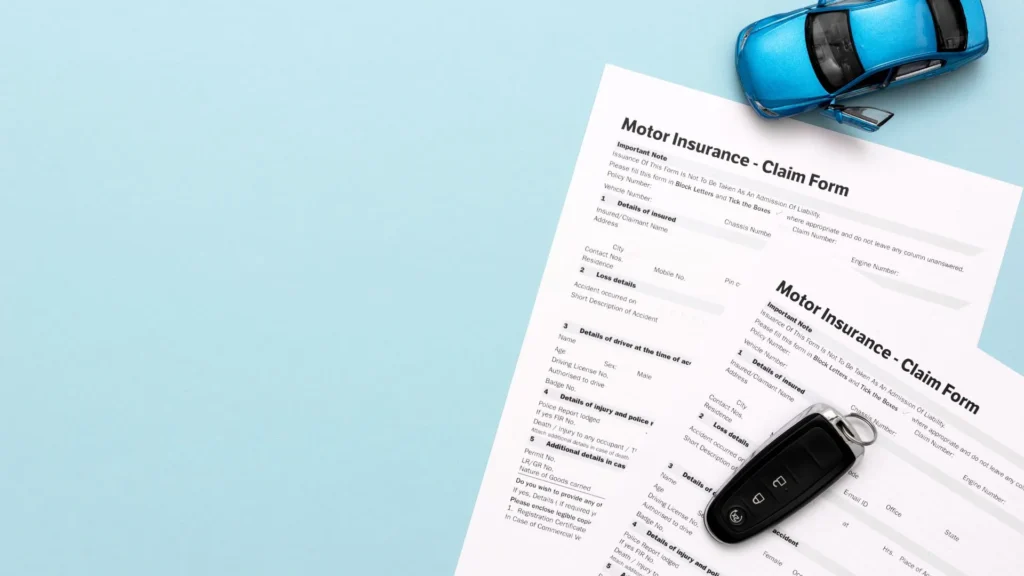When you’re in the market for car insurance, several questions arise in your mind. Car insurance costs in your state every month may top the list. The answer varies depending on several factors that impact and determines the car insurance cost. These factors include coverage type, insurance company, car make and model, location, age, gender and driving record among others.
When you buy a new vehicle, the first thing you look out for is its safety feature. Noting that it’s a kind of investment, you need to insure it before it happens to meet any uncertain events. Beem, America’s first Al-powered Smart Wallet App, is here to help you understand how much car insurance cost each month.
Car Insurance Cost By State
The average cost you have to pay for car insurance depends upon multiple factors, one of which includes, the area you live in. The car insurance cost differs between states and cities due to varying requirements and coverage types.
Essential elements that determine the insurance costs based on locations include crime rate in the state, cost of labor and parts and day-to-day expenses among others. The monthly car insurance cost varies for both full-and minimum coverage policies.
Cheapest States For Full Insurance Coverage
| State | Monthly full coverage |
| Vermont | $92 |
| Maine | $93 |
| Idaho | $99 |
Most Expensive States For Full Insurance Coverage
| State | Monthly full coverage |
| Michigan | $399 |
| Florida | $238 |
| Rhode Island | $229 |
Cost Of Car Insurance Based On Company
Average car insurance cost varies among companies. If you’re looking for the best insurance company, then ensure the type of coverage plays a huge role in making the right decision.
A full coverage car policy can cost about 156% more in comparison to the minimum coverage. It depends on the liability, comprehensive and collision coverage protection that the full-coverage policy provides over the minimum one in that state.
| Company | Monthly Premium |
| USAA | $57 |
| State Farm | $74 |
| Nationwide | $78 |
| GEICO | $78 |
| Travelers | $86 |
| Progressive | $93 |
| Allstate | $94 |
| Farmers | $99 |
How Age Impacts Car Insurance Cost?
Your age significantly impacts how much premium you’ll have to pay for insurance coverage in most states. Statistics claim that young and elderly drivers are more prone to get involved in an accident, and so these groups pay the most for car insurance.
For instance, if you live in Hawaii, the state laws and regulations prohibit the use of age as a rating factor. Massachusetts also bans the use of age to determine insurance rates. However, it takes years of driving experience a person has into consideration as a rating factor.
Drivers aged between 16-19 have three times higher chances of getting majorly affected in car crashes compared to 20 years and older. So, insurers may charge higher premiums to offset the risk.
Average car insurance cost drops every year between the ages of 25 and 55. However, there is a slight increase in premiums for those who are above 65 years.
| Age | Avg monthly premium |
| 16 | $457 |
| 20 | $207 |
| 25 | $119 |
| 30 | $106 |
| 35 | $103 |
| 40 | $102 |
| 45 | $100 |
| 50 | $97 |
| 55 | $94 |
| 60 | $94 |
| 65 | $98 |
| 70 | $104 |
| 75 | $115 |
| 80 | $127 |
| 85 | $136 |
| 90 | $143 |
Cost Of Car Insurance By Credit Score
There are states where credit score is considered one of the rating factors for determining car insurance cost. Drivers with poor credit scores nearly pay 42% more compared to those with good credit history. In such locations, insurers analyze your insurance credit information to identify risks and set appropriate premiums accordingly.
Insurance companies believe drivers with good credit scores have a lower risk appetite for filing claims. So if you raise your credit score, it can help you get lower car insurance rates and other benefits.
In states like Hawaii, Massachusetts, Michigan and California credit score doesn’t impact your car insurance rates.
| Companies | Monthly premium for good credit | Monthly premium for poor credit |
| Progressive | $93 | $166 |
| Nationwide | $78 | $104 |
| GEICO | $78 | $131 |
| State Farm | $74 | $202 |
| Farmers | $99 | $154 |
| Travelers | $86 | $146 |
| Allstate | $94 | $144 |
| USAA | $57 | $102 |
Factors Determining Car Insurance Cost
Various factors affect car insurance costs and the rates are expected to increase further in 2024. Below are some of the key factors that play a huge role in determining the average cost of car insurance:
Gender
Gender highly influences insurance rates as typically men tend to pay more than women. Female drivers are less likely to get involved in major traffic accidents, therefore they tend to pay lower insurance premiums than males.
There are some states that don’t allow gender to be considered as a rating factor. Some of the states include California, North Carolina, Hawaii, Michigan, Pennsylvania and Massachusetts.
Location
Companies use location details such as ZIP code, city and state to identify accidents, thefts and vandalism rates.
If you live in a highly populated area, there are higher chances of harm to your vehicle. You’re likely to pay more for the comprehensive insurance and car insurance coverage portion of your policy. States like California and Michigan don’t allow the use of location/ZIP codes as a rating factor for car insurance costing.
Car Make And Model
New vehicles are expensive to insure because of all the new parts. They have greater replacement value than the old make and models. Modern-day vehicles are outfitted with better safety facets and tracking capabilities that can become cheaper to insure.
Car insurance rates vary depending on car make and model, safety features, location and individual policies. So, you are advised to compare rates based on your specific vehicle type before confirming the insurance.
Driving Record
Your driving record aids insurance providers as they pay attention to one’s experience & driving habits. It shows them how risky it can get while users are driving. Such facets help companies identify monthly payments to insure your vehicle. Drivers with a history of at-fault accidents, speeding and traffic tickets or even new drivers with no records have to pay a higher premium.
A DUI on a driving record can almost double the premiums. Speeding tickets can mean you’ve to pay more than a 20% rate increase compared to clean driving history.
Those who’ve clean driving records will be eligible for further discounts as a reward for safe driving. They may also qualify for less-expensive insurance rates.
Conclusion
When determining the cost of car insurance, some factors are hard to control like age, gender or state you live in. But still, there are a few elements such as DUIs or maintaining a good credit score which can help you to save your money and get the best insurance policies available.
Each insurer weighs each factor differently. Therefore, get a quote from several companies that can help you get policies at a competitive rate.





























